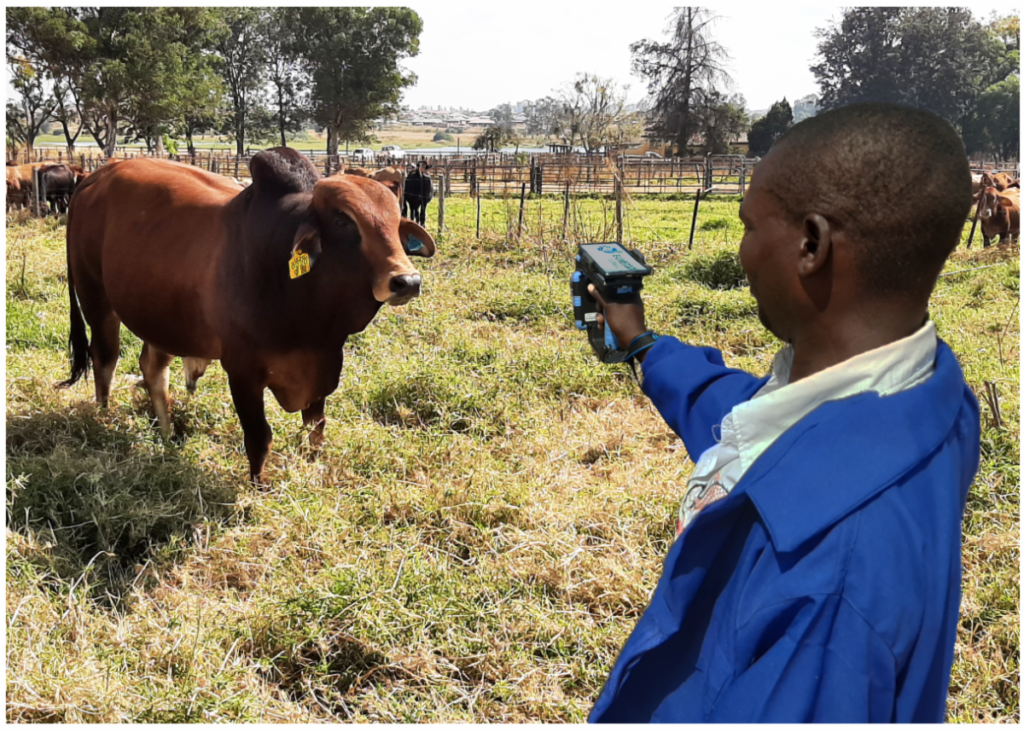
WHAT is the general outlook on agriculture and climate change in your assessment?
Agriculture is the single largest employer of labour in the world today, providing livelihoods for 40 per cent of the global population. It is the largest source of income and job creation for poor rural households.
Most of the farms are dependent on rain-fed, provide up to 80 per cent of food consumed in a large part of the developing countries.
In Africa, 65 per cent of the population is employed in agriculture with women constituting 50 per cent of this number, but climate change is having significant impact on African agriculture because of inadequate preparation to cushion the effects. The effects are becoming more frequent and severe, threatening the reliability and productivity of agriculture, exacerbating the already extreme levels of poverty, and reinforcing persistent inequity and chronic under-nutrition. Over the decades some 75 per cent of crop diversity has been lost from farms worldwide as a result of climate change.
The reality of climate change today and Climate smart agriculture
Climate change is predicted to have great impact on agriculture, constituting a major hurdle for agricultural transformation. Climate change as a serious environmental threat facing food production and food security worldwide therefore needs to be tackled with great commitment today.
There is growing consensus that in the coming years, the world would continue to experience higher temperatures and changing in rainfall patterns. Climate change scenario was no threat to life and environment before the industrial revolution, but has been rapidly changing since then.
Today, the reality is that climate change is going to get worse than it was before now. The effects of this will be more on agricultural production, as it could lead to low agricultural productivity, food insecurity, disease outbreak, increasing unemployment, youth restiveness and human malnutrition, if urgent intervention is not put in place to checkmate it.
Studies showed that climate change is already affecting crop yield and livestock production in many parts of the world particularly in low-income countries, where climate is the primary determinant for agricultural productivity and adaptive capacities are low.
Climate Smart Agriculture (CSA) is agricultural practices that sustainably improve productivity, resilience and adaptation, as well as contribute towards reduction of greenhouse gas emission. Climate Smart Agriculture could lead to overall increase in food production and food security. It brings novelty to the already existing agricultural known practices as a result of change in climate.
As global warming increases, rainfall patterns shift, and extreme events such as droughts, floods, and forest fires become more frequent. The results are poor and unpredictable yields, which make farmers more vulnerable, particularly in Africa. Because of this, farmers face prospects of tragic crop failures, reduced agricultural productivity, increased hunger, youth unemployment, malnutrition and diseases.
How does the climate change phenomenon affect Nigeria and what are the basic things required to mitigate this for smallholder farmers?
The vulnerability to weather-sensitive agricultural production systems as practised in Nigeria are seen and demonstrated by the devastating effects of recent flooding and drought in most parts of the country. The country loses between 10 to 20 per cent of its agricultural production to climate change because of change in rainfall and dry periods. Agricultural productivity is projected to decline between 10 – 25 per cent by 2080, while yields of rain-fed agriculture in some northern parts of Nigeria to decrease up to 50 per cent.
This is likely to result to 4.5 per cent reduction in GDP by 2050. The side effects are poor standard of living and increased poverty for over 90 million households that engage in subsistence farming and high price of agricultural produce. These households account for over 80 per cent of farm holdings in Nigeria. The significant impacts of climate change on agriculture constitute a major hurdle for Nigerian Government.
Agricultural sector is highly vulnerable to a wide range of impacts including increased temperatures, ecosystem degradation, drought, flood and an increase in extreme weather events. The estimate is that during the 2012 flood $16.9bn worth of damages were incurred, affecting 1.5m ha of staple crops and over half a million households dependent on livestock farming.
Understanding farmers’ responses to climate variation is therefore crucial, as this will help design appropriate policy and implementation strategies for sustained food security in the country.
Adaptation of Climate Smart Agricultural practices can reduce farmers’ risks due to climate change, while at the same time enhancing food security and livelihood. It is therefore, necessary that Government begins to adopt climate-smart agriculture practices that will allow smallholders, and big producers, to adapt to climate change, whilst reducing greenhouse gas emissions.
What is the scope of climate smart agriculture locally?
Climate Smart Agriculture (CSA) is a combination of agricultural practices that are supportive of sustained increase in food production, adaptation, mitigation of greenhouse gas emission and, which enhances achievement of national food security and development goals.
CSA embodies the ambition to improve integration of climate change responsiveness into agricultural development planning. These include the traditional methods or techniques of agricultural practices such as mulching, intercropping, conservation of agriculture, pasture and manure management, innovative practices (application of green energy in agriculture), programmes, policies such as improved crop varieties, better weather forecasting, and risk management.
Impact of climate change on agriculture
The impact of climate change on the national economy, in particular agriculture, will be great if adequate response plan and mitigation strategies are not put in place. The International Food Policy Research Institute (IFRP, 2009) estimates that by 2050, the combined effect of increasing temperature, declining rainfall, floods and droughts could result in average rice, wheat and maize yield declining by up to 14 per cent, 22 per cent and five per cent respectively and food availability in Sub-Saharan Africa with average of 500 calories less per person, a 21 per cent decline.
Recent estimates suggest that, in the absence of adaptation, climate change could result in a loss of between two per cent and 11 per cent of Nigerian’s GDP by 2020, rising to between six per cent and 30 per cent by the 2050 resulting to a loss equivalent to between N15 trillion (US$100 billion) and N69 trillion (US$460 billion). This projected large cost is the result of a wide range of climate change impacts affecting all sectors in Nigeria with agriculture being the most vulnerable, said NASPA-CC (BNRCC).
What is the way forward with respect to national food security?
It is of necessity that Nigerian Government begins to adopt Climate-Smart Agriculture practices that will allow small, medium to big farm holders, to adapt to climate change whilst reducing emissions. Any initiative at this stage should be all-inclusive accommodating both the old and the young. The Government of the Federation should as a matter of urgency, in addition to what it is doing presently to mitigate climate change, integrate green technology in agricultural mechanization in Nigeria.
Greening agricultural programme is one tailored towards the use of green energy to hasten and improve agricultural production for better goods and services deliveries. Farmers should be encouraged to use organic fertilizer such as the by-product of biogas production (bio-fertilizer), compost manure emanating from waste agricultural residues and the use of renewable energy in crop processing, storage and handling. The availability of energy for service deliveries has a distinct impact on the lives of people more especially the poor rural dwellers (youths and women) that produce about 90 per cent of our food. In many rural areas, though potential with local resources, inaccessibility to conventional energy sources such as grid electricity supply, expensive fossil fuel that pollutes the environment and the related technologies have been identified to be some of the major barriers militating against meeting the basic living requirements of the rural populace and environmental quality.
For meaningful rural agricultural transformation and development, and improvement in the living standard of the rural dwellers, clean energy availability is therefore paramount. Green energy technology is seen as the best option towards sustainable agricultural transformation and socio-economic emancipation of rural people especially the women and the youths.
Presently, there is no programme in place for training of Nigerian farmers on the benefits and the use of green technologies for the improvement of agricultural yields and food security. To mitigate the effects of climate change in agriculture, it is possible that such a pilot scheme be developed for training of Nigerian farmers (women and youths) on the utilisation of appropriate technologies for agricultural processing and economic empowerment.
Such a scheme should be a farmstead basically on demonstrating greening agricultural production and food security. The youths should be trained on the applications and fabrication of green technology devices. By these, women and youths will be equipped with technical skills as well as soft skills in accessing on-the-job training and employment more especially in the agricultural sector. Through such training the capacities of local service providers will be strengthened and other key stakeholders in a way that ensures that training packages remain locally relevant, increasing the employment prospects of rural women and youths in agricultural sector in climate changing environment.






